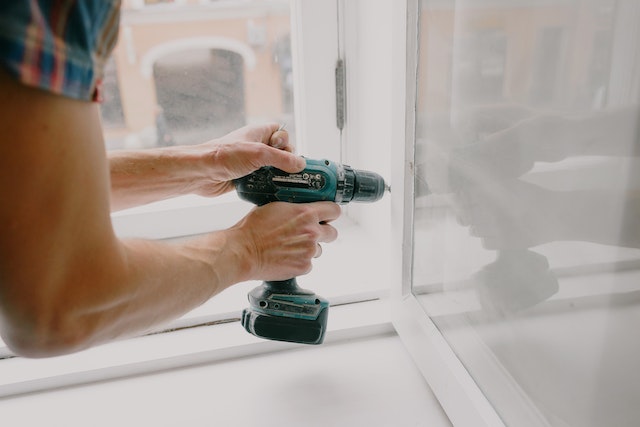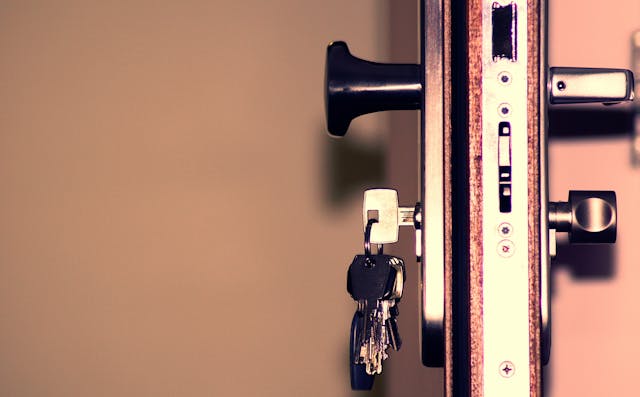
Renting out your property can be financially rewarding, but the success of your rental largely depends on how well you prepare the space to attract and retain tenants. To find reliable tenants and maximize your rental income, you need to make sure your property is both visually appealing and meets all the necessary safety standards.
Keep reading for some useful tips on getting your property ready to rent in Midland, Texas.
1. Ensure Legal Compliance
Before you even list your property, make sure it complies with all local, state, and federal regulations. This includes obtaining any necessary permits, adhering to safety standards, and ensuring your marketing, tenant screening process, and policies meet all requirements of the Fair Housing Act.
Consider consulting with a local property management company to verify that your rental practices and lease agreements are up-to-date and legally sound.
2. Conduct a Thorough Inspection and Make Any Necessary Repairs
Start with a detailed inspection of the entire property to identify any maintenance issues that need to be addressed. Look for common issues like leaks, damage to fixtures, and wear and tear on surfaces.
Ensure that all electrical, plumbing, and heating systems are working efficiently. Addressing these issues not only helps keep the property safe but also makes it more attractive to potential tenants.

3. Upgrade and Modernize
Consider making upgrades to your property that increase its appeal and value. Simple updates such as repainting walls, updating old fixtures, and installing energy-efficient appliances can significantly enhance the look and feel of your rental. Focus on key areas like kitchens and bathrooms, which tend to have a major impact on tenants’ decisions to rent a property or not.
4. Clean Thoroughly
Nothing turns off potential tenants more than a dirty property. Invest in professional cleaning services to give your property a deep clean before showing it. Pay special attention to carpets, windows, bathrooms, and kitchen appliances.
A clean property not only attracts better tenants but also sets a standard for how tenants should maintain the cleanliness of the home. If the lady of the house runs her hand over a kitchen drawer and finds it to be sticky or gritty with crumbs, she is not going to lease the home.
5. Enhance Curb Appeal
First impressions matter, and the exterior of your property is the first thing prospective tenants will see. Enhance your property’s curb appeal by maintaining the landscaping, painting the facade if necessary, and ensuring that all entranceways are clean and inviting. Simple touches like potted plants or a new mailbox can make a big difference.
6. Secure the Property
Safety is a top priority for most tenants. Ensure that all locks on doors and windows function properly. Consider adding security features like motion sensor lights, alarm systems, or a video doorbell. These features not only make your property more attractive but also give you and your tenants peace of mind.
There are specific locks that are required by the State of Texas on all rental properties. This law has been in existence since Dec 31, 1998, but many are not aware of it.

7. Set a Competitive Price
Research the local rental market to set a competitive price for your property. Pricing it too high can deter potential tenants but setting it too low could reduce your earnings. Factor in your property’s location, size, amenities, and condition to determine a fair market rent.
8. Create an Inviting Listing
Once your property is rent-ready, create a listing that highlights its best features. Use high-quality photos and write a clear, detailed description of the property. List all amenities, upgrades, and any unique features that make your property stand out. A great walk-through video is an added bonus.
Post your listing on popular rental listing websites and consider using social media platforms to reach a wider audience.
9. Screen Tenants Carefully
A crucial part of preparing your property is deciding who will live in it. Conduct thorough background checks that include credit, employment, and rental history. This helps ensure that you select tenants who are likely to pay rent on time and take good care of your property.
10. Consider Hiring a Professional Property Manager
If managing your rental property feels overwhelming, hiring a professional property manager can be a wise investment. Property managers handle everything from marketing your rental and screening tenants to managing day-to-day maintenance issues and enforcing lease terms.

Benefits of a Property Manager
- Expertise and Experience: Property managers are well-versed in relevant landlord-tenant laws. They stay updated on changes in legislation, ensuring your rental operations remain compliant. Their experience in the rental market helps in setting competitive rent prices and marketing your property effectively.
- Tenant Relations: A property manager acts as the point of contact for your tenants, handling all communications, complaints, and requests. This can be particularly beneficial if you own multiple properties or live far from your rental property. They also handle tenant screening, ensuring only qualified applicants are considered, which can reduce turnover and vacancy rates.
- Maintenance Management: One of the key roles of a property manager is overseeing the maintenance of your property. They can conduct regular inspections to ensure the property remains in good condition and coordinate repairs as needed. Having a professional handle these tasks can extend the lifespan of your property and keep tenants happy.
- Stress Reduction: Perhaps the most significant benefit is the reduction in stress that comes from having someone else manage the daily operations of your rental. Property managers deal with the hassles of late-night emergencies, maintenance calls, and tenant disputes, allowing you to focus on the bigger picture of your investment.
- Cost Efficiency: While hiring a property manager involves a cost, often a percentage of the monthly rent, their services can lead to cost savings in other areas. Efficient tenant screening can reduce turnover, and proactive maintenance can prevent costly repairs. Additionally, their ability to negotiate with contractors and vendors can result in lower expenses for services.
Conclusion
Getting your property ready to rent involves more than just making it look good. It requires attention to legal details, a commitment to maintenance, and an understanding of the rental market. By following these tips, you can enhance the appeal of your property, attract and retain quality tenants, and ensure a profitable and stress-free rental experience.
A good property manager will not only maintain the value of your property but can enhance its profitability. Contact the experts at McCourt Real Estate & Property Management if you have questions about property management.